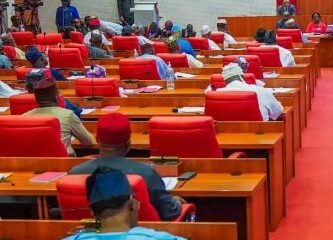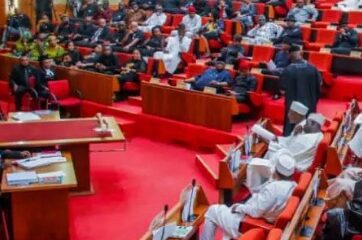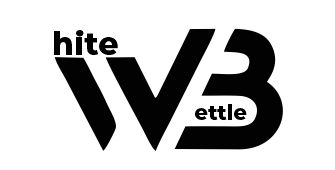JobList
How Tinubu Plans To Make Nigeria’s Education Sector Globally Competitive
Published
7 months agoon

How Tinubu Plans To Make Nigeria’s Education Sector Globally Competitive
Nigeria’s education sector is facing many challenges, such as low enrollment, poor quality, inadequate funding, and lack of infrastructure. These challenges have hampered the development of human capital and the achievement of the Sustainable Development Goals (SDGs) in the country. According to the World Bank, Nigeria has the highest number of out-of-school children in the world, with about 10.5 million children not attending school. The country also ranks low in the global education indicators, such as literacy, numeracy, and learning outcomes.
However, there is hope for the future of Nigeria’s education sector, as one of the leading political figures in the country, Bola Ahmed Tinubu, has unveiled his plans to transform and revitalize the sector. Tinubu, who is widely regarded as the national leader of the ruling All Progressives Congress (APC) party, and a potential presidential candidate for the 2023 general elections, has outlined his vision and strategy for making Nigeria’s education sector globally competitive.
Tinubu’s plans for the education sector are based on four pillars: access, quality, innovation, and funding. He believes that these four pillars are essential for creating a world-class education system that can produce skilled, knowledgeable, and employable graduates who can contribute to the economic and social development of the country.
Access
Tinubu’s first pillar for the education sector is access, which means ensuring that every Nigerian child has the opportunity and the right to receive quality education, regardless of their location, gender, or socio-economic status. Tinubu aims to achieve universal access to education by implementing the following policies and programs:
- Expanding and upgrading the existing school infrastructure, such as classrooms, libraries, laboratories, and ICT facilities, to accommodate more students and provide a conducive learning environment.
- Providing free and compulsory education from primary to secondary level, and subsidizing tertiary education for eligible students, to reduce the financial barriers and increase the enrollment and retention rates.
- Implementing the school feeding program, which provides nutritious meals to students in public schools, to improve their health, attendance, and academic performance.
- Promoting inclusive education, which caters to the needs and interests of students with disabilities, special needs, or learning difficulties, and ensuring that they have access to appropriate and adequate support and resources.
- Enhancing the quality and availability of teachers, especially in rural and remote areas, by recruiting, training, motivating, and retaining qualified and competent teachers, and providing them with regular professional development and incentives.
Quality
Tinubu’s second pillar for the education sector is quality, which means ensuring that the education system delivers relevant, effective, and high-standard education that meets the needs and expectations of the students, the employers, and the society. Tinubu aims to improve the quality of education by implementing the following policies and programs:
- Developing and implementing a national curriculum, which is aligned with the global best practices and standards, and covers the core subjects, such as mathematics, science, language, and social studies, as well as the emerging and cross-cutting fields, such as entrepreneurship, digital literacy, and civic education.
- Introducing and enforcing a national assessment system, which evaluates the learning outcomes and achievements of the students, the teachers, and the schools, and provides feedback and recommendations for improvement.
- Establishing and maintaining a quality assurance mechanism, which monitors and regulates the quality and standards of the education institutions, programs, and services, and ensures accountability and transparency.
- Encouraging and supporting the accreditation and ranking of the education institutions, especially the tertiary institutions, by reputable and recognized local and international bodies, to enhance their reputation and competitiveness.
- Fostering and facilitating the collaboration and partnership between the education sector and the industry sector, to ensure that the education system produces graduates who have the skills, knowledge, and competencies that are relevant and in-demand in the labor market.
Innovation
Tinubu’s third pillar for the education sector is innovation, which means ensuring that the education system fosters and promotes creativity, critical thinking, problem-solving, and innovation among the students, the teachers, and the education stakeholders. Tinubu aims to foster innovation in education by implementing the following policies and programs:
- Integrating and leveraging the use of information and communication technology (ICT) in the education system, to enhance the delivery, access, and quality of education, and to provide more opportunities for online and distance learning, especially during the COVID-19 pandemic and beyond.
- Supporting and investing in the research and development (R&D) activities in the education sector, especially in the fields of science, technology, engineering, and mathematics (STEM), and providing grants, scholarships, and awards for the researchers, innovators, and entrepreneurs who contribute to the advancement of knowledge and innovation in the country.
- Creating and nurturing a culture of innovation and entrepreneurship in the education sector, by introducing and implementing programs and initiatives that encourage and empower the students, the teachers, and the education stakeholders to generate and implement innovative ideas and solutions that address the challenges and opportunities in the education sector and the society at large.
- Establishing and strengthening the linkages and networks between the education sector and the innovation ecosystem, which includes the government, the private sector, the civil society, and the international community, to facilitate the exchange of ideas, resources, and best practices, and to create a conducive and supportive environment for innovation and entrepreneurship in the country.
Funding
Tinubu’s fourth and final pillar for the education sector is funding, which means ensuring that the education system has adequate and sustainable financial resources to support and implement its plans and programs. Tinubu aims to increase and diversify the funding for education by implementing the following policies and programs:
- Increasing the budget allocation and expenditure for the education sector, to meet the national and international benchmarks and commitments, such as the 26% of the national budget recommended by the United Nations Educational, Scientific and Cultural Organization (UNESCO).
- Improving the efficiency and effectiveness of the public spending on education, by ensuring that the funds are allocated and utilized in a transparent, accountable, and equitable manner, and that they reach the intended beneficiaries and achieve the desired results.
- Mobilizing and attracting more funds from the private sector, the civil society, and the international community, to supplement and complement the public funding for education, and to leverage their expertise, experience, and networks.
- Exploring and implementing alternative and innovative sources and mechanisms of funding for education, such as the education tax, the education bond, the education lottery, the education trust fund, and the education endowment fund.
Tinubu’s plans for the education sector are ambitious and comprehensive, and they reflect his vision and passion for the development of Nigeria. He believes that education is the key to unlocking the potential and prosperity of the country and its people. He hopes that by transforming and revitalizing the education sector, he can make Nigeria’s education sector globally competitive, and make Nigeria a leading nation in the world.

You may like
-


Seoul National University Global Scholarship – Apply
-


Hainan University PhD and Master Degree Scholarship 2024 – Apply
-


Consult With Zimbabwe, Obasanjo Advises The Tinubu Government
-


Gov Mutfwang: Buhari Sold Nigeria’s Future
-


Sen. U-turns And Approves Bill To Prolong The Tenure of National Assembly Employees
-


Senate Approves Four Candidates For CBN’s Board Of Directors

















